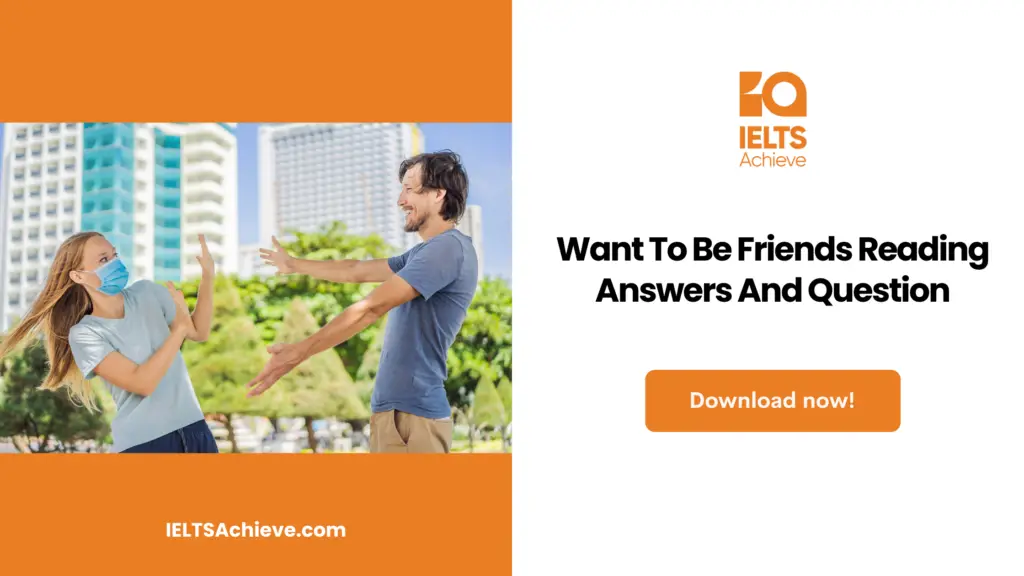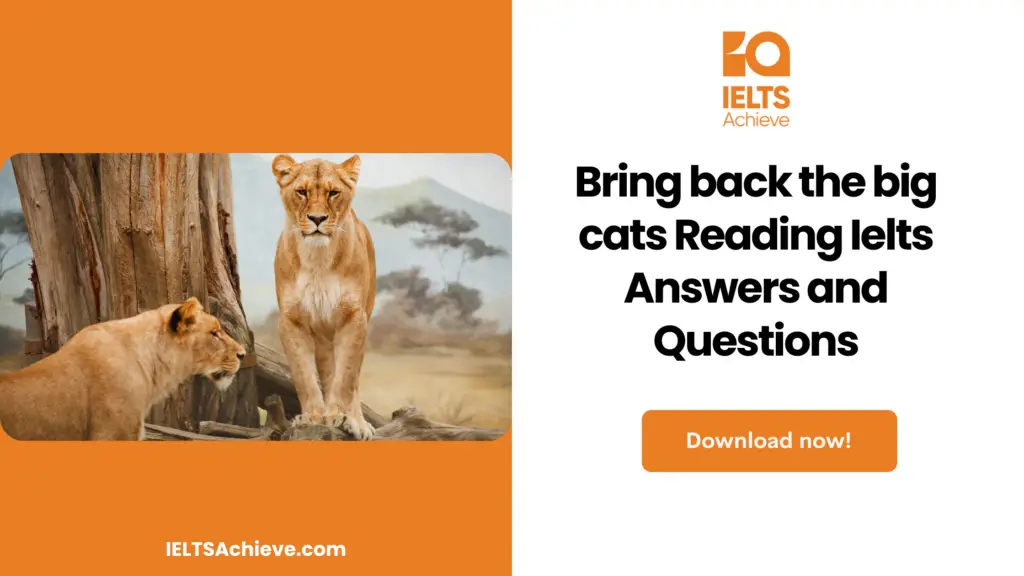The Blog post contains the following IELTS Reading Questions:
- IELTS Reading Matching Features
- IELTS Reading Multiple Choice Questions
- IELTS Reading Matching Headings
Stay informed and prepared for success – Explore our comprehensive Reading Test Info page to get valuable insights, exam format details, and expert tips for mastering the IELTS Reading section.
IELTS Reading Passage – Want to be friends

Want To Be Friends
For hundreds of millions of individuals throughout the globe, internet networking has become an integral part of our everyday lives. However, a decades-old observation from a study of conventional social networks clearly explains one of the most crucial characteristics of modern internet networking. Sociologist Mark Granovetter proved in 1973 that the weak connections in our social network disproportionately affect our behaviour and decisions. According to Granovetter’s research findings, many large numbers of individuals get employment through the suggestions or advice of a weak connection. Our weak-tie connections have exploded through online social networking today. Jennifer Golbeck of the University of Maryland says, ‘You couldn’t keep all of those weak relationships on your own, Online platforms, such as Facebook, provide a mechanism to catalogue them.’ The result? It is now substantially simpler for a school friend you haven’t seen in years to give you a tip that changes your behaviour, such as a suggestion for low-cholesterol morning cereal or an invitation to a party where you meet your future spouse.
According to Judith Donath of the Berkman Centre for Internet and Society at Harvard University, the emergence of weak relationships might also have significant impacts on our social systems. She added, ‘We’re already seeing changes.’ Many individuals today rely on their online social networks rather than newspapers and television for credible and pertinent news and information, for instance. Even though what they hear is incorrect, change is nevertheless occurring. If these enormous supernets’ – some of which include up to 5,000 individuals – continue to survive and expand, they might profoundly alter the way we exchange information and our conceptions of relationships.
But are these enormous networks really that important for us on a personal basis? An evolutionary anthropologist at the University of Oxford, Robin Dunbar, believed that our primate brains enforce a limit of around 150 on the number of genute interpersonal contacts we can handle. Online social networking seems to be very good for ‘servicing relationships, but not for building them, according to Dunbar. Our evolutionary roots indicate that we still rely primarily on physical and face-to-face contact to be able to build connections, he argues.
Despite this, there is proof that online networking can influence our regular conversations. Jeff Hancock, psychologist at Cornell University, in an experiment he asked individuals to try to encourage other participants to like them through instant messaging conversation. Beforehand, some individuals were permitted to visit the Facebook account of the person they were attempting to convince. Those with Facebook access made a questionnaire to which they already knew the answers or brought up items they shared, resulting in far more effective social interactions. People who visit these websites to keep updated on the activities of their acquaintances are more likely to be liked in subsequent social interactions, Hancock concluded.
Online social networking may also have significant ramifications on our healthcare. Nicole Ellison of Michigan State University discovered that the frequency of using networking sites correlates with greater self-esteem. Ellison says, support and reinforcement from the weak connections could be the explanation. She says, ‘There is nothing new about asking close friends for help or guidance, but we are seeing a decline in barriers among strangers,’ People are more willing than they formerly were to share their feelings and experiences with a wider audience. At the Massachusetts Institute of Technology, Sandy Pentland, agrees with this. He says, the ability to communicate with our social group means we will never feel alone. Lack of social support is often the origin of our problems. Now, there is more of a safety net.’
At MIT, Henry Holman, who analyses the connection between online social networking and the real world, points out that growing accessibility also indicates our various social spheres – family, work, friends – are combining, and so we will have to prepare for new society’s standards. He says, we will need to learn how to live an open life. We may have to give up the opportunity to provide others with very limited views into ourselves.
It seems that online networking is changing our social structures through dominance. Michael Kearns, the University of Pennsylvania, In one repeated experiment he asked 30 volunteers to quickly reach a decision in an online game over a choice between two colours. If people succeeded in persuading the group to pick one or other colour, then each person was offered a cash reward. Although all participants could see the colour chosen by some of the other individuals, certain participants had an extra advantage: the ability to see more of the participants’ chosen colours than others. Kearns discovered that individuals who could see the choices of more participants (i.e. who were more connected) were always able to persuade the group to choose their colour, even though they had to convince the great majority to give up their cash incentive. While Kearns emphasises that the environment was artificial, he suggests that well-connected people may also have stronger persuasive power in the online realm of ordinary life.
Unlock your full potential in the IELTS Reading section – Visit our IELTS Reading Practice Question Answer page now!
Recommended Questions:
Renewable Energy IELTS Reading Question with Answer
Want to be friends IELTS Reading Questions
Questions 1-4
Match the informations using the list of letters, A-F, below: Write the correct letter, and answer 1-4 on your answer sheet.
List of findings,
- Robin Dunbar
- Michael Kearns
- Judith Donath
- Nicole Ellison
- Mark Granovetter
- Jeff Hancock
- ___________There is a limit to how many meaningful relationships we can build.
- __________People with large social networks may be more capable of putting pressure on Others.
- ___________Knowing about the lives of our internet contacts is advantageous from a social point of view.
- ___________We have become more willing to confide in an extensive number of others.
Improve your performance in Matching Features questions by clicking here to access our comprehensive guide. Learn how to match specific features or characteristics with the options provided in the IELTS Reading section.
Questions 5-8
Choose TWO answers, A-E.
Which TWO of these advantages of online social networking are mentioned in the Reading Passage?
- Online social networking can solve problems in real-world relationships.
- It is very easy to establish new friendships online.
- It can be reassuring to be part of an online social network.
- Social networking sites can be accessed on any day and at any time.
- Online socialising is an efficient way of keeping in touch with a lot of people.
Which TWO of these disadvantages of online social networking are mentioned in the Reading Passage?
- We may become jealous of people who seem to have a wide circle of friends.
- Using social networking sites may result in a lack of privacy.
- It is easy to waste a lot of time on social networking sites.
- Information from online social contacts may be unreliable.
- We may lose the ability to relate to people face-to-face.
Ready to improve your performance in Multiple Choice Questions (MCQs)? Click here to access our comprehensive guide on how to tackle MCQs effectively in the IELTS Reading section.
Questions 9-14
Choose the correct heading for paragraphs from A-G from the given list. Write the correct letter, and answer 9-14 on your answer sheet.
List of headings,
- A shift in our fact-finding habits
- The origins of online social networks
- The emotional benefits of online networking
- Doubts about the value of online socialising
- How to be popular
- Information that could change how you live
- The future of networking
- More personal information being known
- A change in how we view our online friendships
- The link between knowledge and influence
9. Paragraph B
10. Paragraph C
11. Paragraph D
12. Paragraph E
13. Paragraph F
14. Paragraph G
Ready to conquer Matching Headings questions? Click here to learn essential tips and techniques for matching headings accurately to paragraphs or sections in the IELTS Reading section.
Unlock your full potential in the IELTS Reading section – Visit our IELTS Reading Practice Question Answer page now!
Recommended Questions:
Renewable Energy IELTS Reading Question with Answer
Want to be friends reading answers
1. A
2. B
3. F
4. D
5. C
6. E
7. B
8. D
9. I
10. IV
11. V
12. III
13. VIII
14. X

We hope you found this post useful in helping you to study for the IELTS Test. If you have any questions please let us know in the comments below or on the Facebook page.
The best way to keep up to date with posts like this is to like us on Facebook, then follow us on Instagram and Pinterest. If you need help preparing for the IELTS Test, join the IELTS Achieve Academy and see how we can assist you to achieve your desired band score. We offer an essay correction service, mock exams and online courses.

